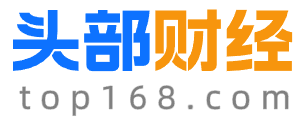
(Image source: unsplash)
AsianFin— Ultra Precision Intelligent Technology, a rising star in China's semiconductor equipment sector, has secured tens of millions of yuan in a Series A funding round, as it ramps up efforts to challenge foreign dominance in advanced chip inspection and packaging equipment.
The round was led by Junxi Capital, with participation from Xiangjiang Guotou and Changcai Private Equity. The fresh capital will fuel R&D of core technologies, expansion into vertical industry markets, and talent acquisition, according to the company.
Founded in 2020 in Changsha High-Tech Zone, Ultra Precision specializes in nanometer-level automated optical inspection (AOI) and high-precision chip packaging equipment. With demand for AI chips and advanced computing power surging globally, the company is positioning itself as a domestic alternative to foreign giants like Israel's Camtek, Japan's Toray, and the U.S.'s ONTO.
"We've achieved independent control over key technologies, breaking the monopoly of foreign equipment," said Wang Huirong, founder and chairman of Ultra Precision. Wang, a semiconductor veteran with stints at Omron and other listed firms, said the company expects revenue to triple this year, reaching several hundred million yuan.
Wang emphasized that Ultra Precision is eyeing a potential IPO as it deepens its presence in sectors like optical communications, computing chips, and high-power lasers.
"If we can continue to serve high-quality clients with excellent equipment, we'll take this company public and accelerate growth through the capital markets," Wang said.
The company's flagship AOI inspection system can detect defects as small as 30nm on optical chips using AI algorithms with a reported accuracy of 99.9%. Data from inspections can be archived locally or uploaded to factory MES systems, enabling seamless integration with production lines.
Ultra Precision's strength lies in its vertically integrated platform that spans ultra-precision mechanics, motion control, custom AI algorithms, and advanced optics—allowing it to iterate products rapidly and address client pain points across multiple process steps.
The global semiconductor industry is on track to top $1 trillion by 2030, driven by AI, high-bandwidth memory (HBM), and automotive computing, according to data from the World Semiconductor Trade Statistics and SEMI. China, now the world's largest market for semiconductor equipment, is pushing aggressively to localize production amid U.S. tech restrictions.
In 2025 alone, China's investment in chipmaking tools is projected to reach $38 billion, with domestic fabs expected to contribute nearly one-third of global production capacity, measured in 8-inch wafer equivalents.






 京公网安备 11011402013531号
京公网安备 11011402013531号